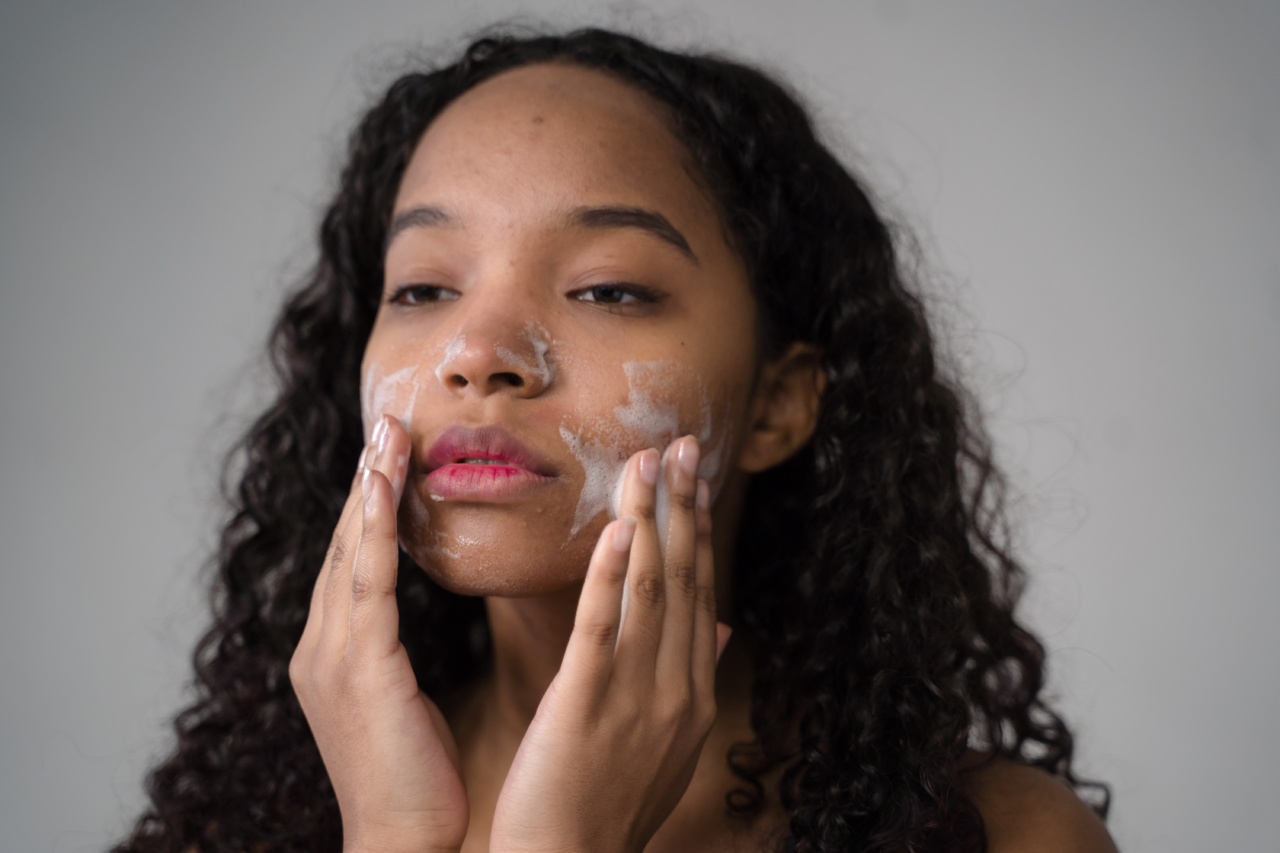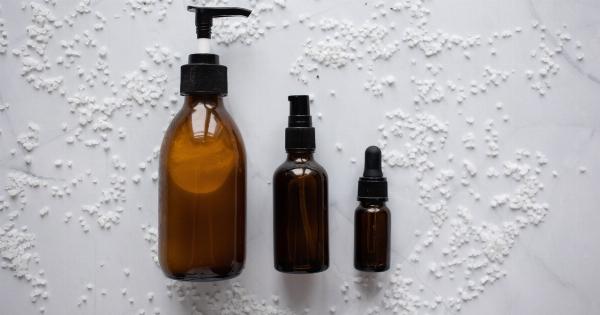Facial soap is an essential part of our daily skincare routine. However, most people are not using their facial soap correctly.
From using it too often to using it on the wrong parts of the face, there are many ways you could be compromising the effectiveness of your facial cleanser. In this article, we will be discussing 30 ways you’re using your facial soap wrongly.
1. Using The Wrong Soap
One of the most common mistakes people make when using facial soap is using the wrong type of soap. This can lead to adverse effects such as dryness, irritation, and breakouts.
It’s essential to choose a soap that caters to your skin type, whether oily, dry, or sensitive. Additionally, it would help if you looked for soaps free from harsh chemicals like parabens, sulfates, and fragrances.
2. Not Wetting Your Face First
Before applying facial soap, you need to wet your face. It helps to open up your pores, making them easier to clean. Additionally, it makes it easier for the soap to lather and spread evenly on your skin.
Always make sure to wet your face before applying facial soap.
3. Using Too Much Soap
A little goes a long way when it comes to facial soap. Using too much soap can irritate and dry out your skin. Additionally, it can clog your pores, leading to breakouts. Always use a nickel-sized amount of soap to avoid these problems.
4. Rubbing Your Face Too Hard
While you want to make sure to clean your face well, rubbing too hard can damage your skin. Doing this can cause irritation, redness, and even premature aging. Instead, use a gentle circular motion to cleanse your face. Be kind to your skin.
5. Not Removing Your Makeup First
If you wear makeup, it’s essential to remove it before using your facial soap. Makeup can clog your pores, and your soap may not be enough to clean it all off.
Use micellar water or makeup remover wipes to remove your makeup before using your facial soap.
6. Washing Your Face Too Often
While it’s essential to keep your face clean, washing it too often can lead to dryness and irritation. The ideal number of times to wash your face per day is twice, in the morning and at night.
Over-washing your face can strip your skin of essential oils, leading to dryness, sensitivity, and breakouts.
7. Using Hot Water
Hot water may feel relaxing, but it can be damaging to your skin. It can strip your skin of its natural oils, leading to dryness and irritation. Additionally, hot water can worsen rosacea.
It would help if you used lukewarm water when washing your face to avoid these problems.
8. Not Rinsing Enough
It’s crucial to rinse your face well after using your facial soap. Any residue left on your skin can clog your pores, leading to breakouts. Additionally, unused soap can dry out your skin, leading to dryness and irritation.
Always make sure to rinse your face well after using your facial soap.
9. Using Soap On Your Eyes
Facial soap is not suitable for use on your eyes. It can irritate, dry out, and even sting your eyes. Additionally, it can cause eye infections. Instead, use a gentle eye makeup remover if you need to remove eye makeup.
You could also use baby shampoo to cleanse your lashes and brows.
10. Using Soap On Your Lips
It’s also not advisable to use facial soap on your lips. The skin on your lips is sensitive and delicate, and using soap can cause dryness, redness, and irritation. Instead, use a gentle lip scrub to remove any dead skin or excess oils.
11. Not Drying Your Face Enough
After rinsing your face, it’s essential to pat your face dry gently. Leaving your face wet can cause irritation, especially if your skin is sensitive.
Additionally, leaving your face damp can cause your skincare products to not absorb entirely into your skin. Always make sure to pat your face dry after washing.
12. Using Your Body Soap On Your Face
Your body soap is not suitable for use on your face. The skin on your face is more delicate and sensitive, and using body soap can cause breakouts and irritation. Additionally, body soap can be overly drying for your face.
Always use a facial cleanser specially formulated for your skin type.
13. Not Changing Your Soap Regularly
Facial soap can harbor bacteria over time, making it crucial to change it regularly. Using the same soap for too long can cause irritation, breakouts, and infections.
Always change your facial soap every three months or when it starts to look or smell funny.
14. Not Treating Your Neck And Chest Area
While you may focus on your face when washing, you need to pay attention to your neck and chest area too. These areas can also experience breakouts and dryness, making it crucial to wash them too.
Use a gentle soap and a gentle circular motion when washing these areas.
15. Not Checking The PH Level
It’s essential to use a facial soap with a PH level between five and six. If you use a soap with a PH level higher than this, it can cause your skin to become too alkaline. This can lead to irritation, dryness, and sensitivity.
Always check the PH level when choosing your facial soap.
16. Not Using A Toner After Washing
After washing your face, it’s essential to use a toner. A toner helps to balance your skin’s PH levels and prepare it for other products. Additionally, it helps to remove any excess oil and impurities left on your skin.
Always use a toner after washing your face.
17. Not Exfoliating Regularly
While facial soap can help cleanse your skin, exfoliating regularly helps to remove any dead skin cells and excess oil. Additionally, it stimulates cell renewal, promoting brighter, healthier skin.
Choose an exfoliator based on your skin type and use it once or twice a week.
18. Using Harsh Scrubs
While exfoliating regularly is essential, using harsh scrubs can damage your skin. Harsh scrubs can cause redness, inflammation, and even bleeding.
Instead, choose a gentle exfoliator with rounded particles that won’t damage your skin’s surface.
19. Using A Dirty Washcloth
Using a dirty washcloth to cleanse your face can negate the benefits of your facial soap. A dirty washcloth can harbor bacteria, leading to breakouts and infections. Additionally, it can cause your skin to become irritated.
Always make sure you have a clean washcloth when washing your face.
20. Not Using A Serum or Moisturizer
After washing your face, it’s essential to use a serum or moisturizer. These products help to hydrate and nourish your skin, locking in moisture. Additionally, they help to keep your skin looking youthful and radiant.
Always use a serum or moisturizer after washing your face.
21. Using Too Many Products
While using products to keep your face looking its best is essential, using too many can cause problems. It’s essential to streamline your skincare routine to avoid irritation, dryness, and breakouts.
You should use your facial soap, toner, and moisturizer, plus one or two extra products based on your individual skin needs.
22. Applying Makeup Immediately After
After washing your face, you should wait a few minutes before applying makeup. Applying makeup immediately after washing your face can cause it to cake and get oily. Additionally, it may clog your pores, leading to breakouts.
Always wait a few minutes before applying makeup.
23. Using Soap On Acne-Prone Skin
If you have acne-prone skin, it’s essential to use a facial soap expressly formulated for that purpose. Regular facial soap may not be effective in treating acne and may even make it worse.
Look for a soap with ingredients like salicylic acid or benzoyl peroxide to help fight acne.
24. Using Soap Too Close To Your Eyes
While we’ve already stated that facial soap is not suitable for use on your eyes, it’s also not advisable to use it too close to your eyes. Soap can run into your eyes, causing irritation and stinging.
Additionally, it can cause you to rub your eyes, leading to under-eye puffiness and dark circles.
25. Using Soap On Scars
It’s not advisable to use facial soap on your scars. Scars are already delicate, and using soap can make them worse. Additionally, it can cause the surrounding skin to become dry and irritated.
Instead, use a gentle oil or cream specially formulated to help scars fade.
26. Not Using Soap After A Heavy Workout
After a heavy workout, your face can become sweaty and dirty. It’s essential to wash it with facial soap to remove any impurities and sweat. Additionally, leaving sweat and dirt on your face can lead to breakouts.
Always make sure to wash your face with facial soap after a heavy workout.
27. Not Massaging Soap Into Your Skin
While a gentle circular motion is essential when washing your face, it’s also important to massage the soap into your skin. Massaging the soap into your skin helps to increase blood flow, promoting collagen production.
Additionally, it ensures that the soap cleanses your skin thoroughly.
28. Not Washing Your Face Long Enough
While washing your face for too long can be damaging, not washing it long enough can leave impurities behind. Make sure to give yourself enough time to cleanse your face well. You should aim to wash your face for about 30 seconds to a minute.
29. Not Patch Testing
Before using a new facial soap, it’s essential to patch test it first. Patch testing helps to determine if you may be allergic or sensitive to any of the soap’s ingredients.
Apply a small amount of soap to a small patch of skin and wait for 24 hours. If you experience any redness, itching, or irritation, do not use the soap.
30. Ignoring Warning Signs
Your skin will give you warning signs when something is not right. If you experience dryness, irritation, redness, breakouts, or any other adverse reactions, don’t ignore them.
These signs can indicate that you’re using your facial soap wrongly. Make the necessary changes to your skincare routine to ensure you’re taking care of your skin.





























